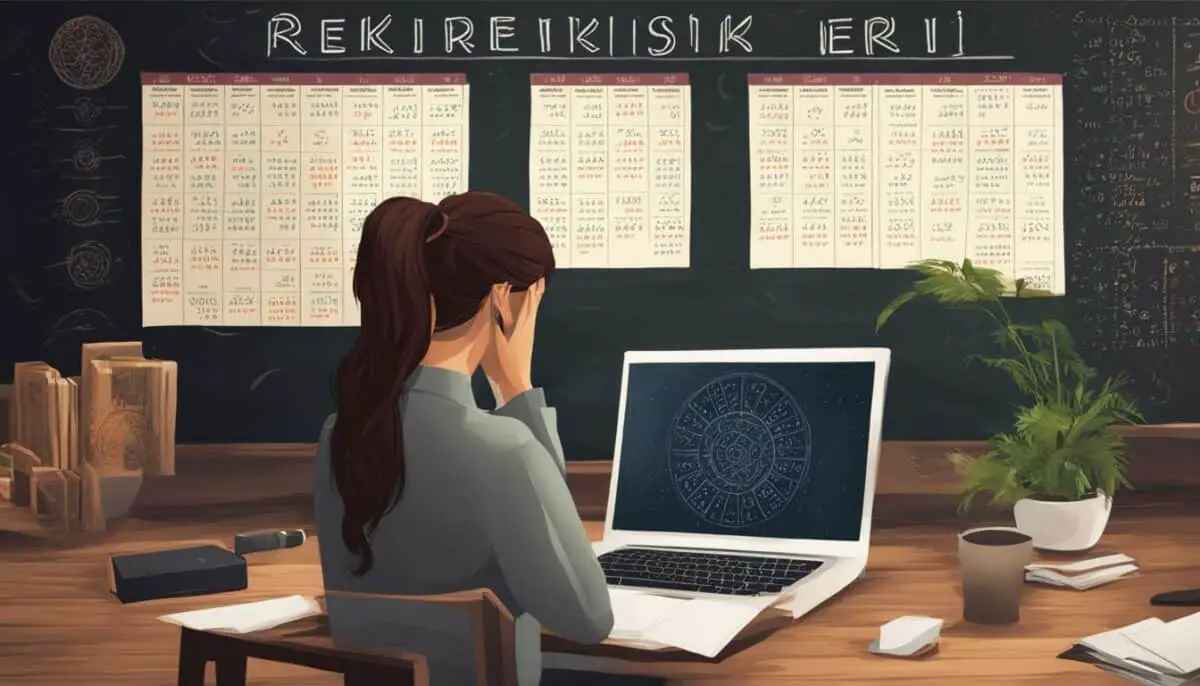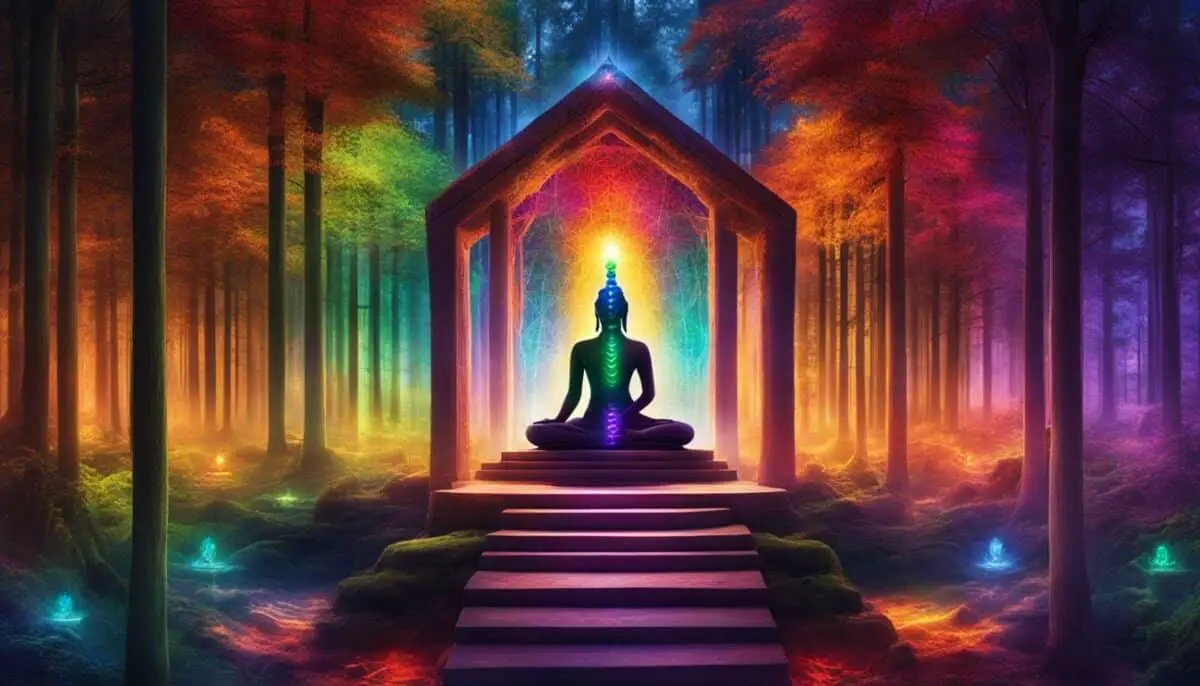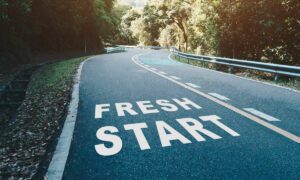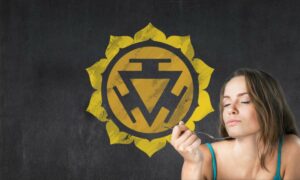Welcome to the enlightening world of reiki courses! If you’re curious about what a reiki course entails, you’ve come to the right place! In this article, we will dive deep into the definition of a reiki course, explore what exactly reiki does, and answer the burning question of how long it takes to learn this ancient healing practice.
Reiki is a mysterious and powerful Japanese form of energy healing. It involves the transfer of “universal energy” from the practitioner’s palms to the patient, with the aim of promoting emotional and physical healing. This energy, often referred to as life force energy or qi, is believed to flow through our bodies and can be manipulated to restore balance and well-being.
While reiki is not scientifically proven, it has gained popularity as a complementary therapy. Many individuals find that learning reiki enhances their overall well-being, providing relaxation, stress reduction, and a deeper connection with their inner selves.
Key Takeaways:
- A reiki course introduces you to the Japanese form of energy healing.
- Reiki involves the transfer of universal energy to promote emotional and physical healing.
- While not scientifically proven, reiki can enhance overall well-being.
- Learning reiki allows individuals to connect with their inner selves and develop a deeper understanding of their own energy.
- It is not a replacement for conventional medical treatment and should be used in conjunction with evidence-based practices.
The Benefits of a Reiki Course
While there is no scientific evidence to support the efficacy of reiki as a medical treatment, many individuals find value in taking a reiki course. Learning reiki can provide you with an opportunity to connect with your inner self and develop a deeper understanding of your own energy. It can also promote relaxation, reduce stress, and enhance your overall well-being.
By completing a reiki course, you may experience increased self-awareness, improved intuition, and a greater sense of balance and harmony in your life. Reiki can help you tap into your own healing abilities and become more attuned to the energy around you. It allows you to take an active role in your own well-being and offer potential support and healing to others.
The Benefits of a Reiki Course:
- Connect with your inner self and develop a deeper understanding of your own energy.
- Promote relaxation, reduce stress, and enhance overall well-being.
- Increase self-awareness, improve intuition, and achieve a greater sense of balance and harmony.
- Tap into your own healing abilities and become more attuned to the energy around you.
- Take an active role in your own well-being and potentially offer support and healing to others.
To experience these benefits firsthand, explore this Reiki course on Udemy.
What happens when you learn reiki?
When you learn reiki, you gain knowledge and skills that allow you to channel and harness the universal life force energy. You will learn various techniques for activating and directing this energy, both for self-healing and for offering healing to others. Through practice and experience, you will develop a stronger connection with your own energy and the energy of the universe.
As you progress through a reiki course, you will likely experience an increased sense of calmness, inner peace, and vitality. You may also notice improvements in your ability to manage stress, cope with emotions, and maintain a positive mindset. Reiki can be a transformative journey that deepens your understanding of yourself and the interconnectedness of all things.
What does it mean to be reiki certified?
Being reiki certified means that you have completed the necessary training and demonstrated proficiency in the practice of reiki. It signifies that you have gained the knowledge and skills to practice reiki on yourself and others, with a level of competence and understanding.
Reiki certification typically involves completing different levels of training, starting from the basic principles and techniques of reiki and progressing to more advanced teachings. Each level builds upon the previous one, deepening your understanding and abilities in working with energy. With certification, you can choose to incorporate reiki into your personal life or offer it as a professional service to others.
| Benefits of a Reiki Course | What Happens When You Learn Reiki? | What Does It Mean to Be Reiki Certified? |
|---|---|---|
| Connect with your inner self and develop a deeper understanding of your own energy. | Gain knowledge and skills to channel and harness the universal life force energy. | Completion of necessary training and demonstration of proficiency in reiki practice. |
| Promote relaxation, reduce stress, and enhance overall well-being. | Learn techniques for self-healing and offering healing to others. | Ability to practice reiki on yourself and others with competence. |
| Increase self-awareness, improve intuition, and achieve a greater sense of balance and harmony. | Experience increased calmness, inner peace, and vitality. | Opportunity to incorporate reiki into personal life or offer it professionally. |
| Tap into your own healing abilities and become more attuned to the energy around you. | Develop a stronger connection with your own energy and the energy of the universe. | – |
| Take an active role in your own well-being and potentially offer support and healing to others. | Improve ability to manage stress, cope with emotions, and maintain a positive mindset. | – |
Exploring the Options: Reiki Courses Online and Near You
Whether you’re looking for the convenience of online learning or prefer the interactive experience of in-person training, there are options available for taking a reiki course that suits your needs.
If you thrive in a self-paced environment and enjoy the flexibility of learning from the comfort of your own home, online reiki courses may be the perfect fit for you. Platforms like Udemy offer comprehensive online reiki courses that cover the basics of reiki and provide certification upon completion. These courses typically include video lectures, downloadable resources, and practical exercises to enhance your learning experience. Plus, you can access the course materials at any time that fits your schedule.
On the other hand, if you prefer a more hands-on approach and value the guidance of an experienced instructor, consider enrolling in a reiki course near you. In-person training allows you to immerse yourself in a supportive learning environment where you can practice reiki techniques under the instructor’s supervision. These courses often include demonstrations, practical exercises, and opportunities to practice reiki on others. Additionally, you can connect with like-minded individuals who share a passion for energy healing.
Ultimately, whether you choose an online or in-person reiki course, the key is to find a reputable provider who offers comprehensive training and certification. Take the time to research different options, read reviews, and consider your learning preferences. By investing in a high-quality reiki course, you’ll gain the knowledge and skills needed to confidently practice reiki and embark on your journey of healing and personal growth.
For a comprehensive online Reiki course, consider this Reiki course on Udemy.

Table: Comparing Online Reiki Courses and In-Person Training
| Factors | Online Reiki Courses | In-Person Training |
|---|---|---|
| Flexibility | Learn at your own pace, access course materials anytime | Scheduled classes and in-person attendance required |
| Interaction | Limited interaction with instructors and fellow students through discussion boards and forums | Direct interaction with instructors and classmates, opportunity for hands-on practice |
| Support | Access to online resources and support from the course provider | Immediate feedback and guidance from instructors during in-person sessions |
| Practical Experience | Practice on yourself and friends/family, limited opportunity for hands-on practice on others | Opportunities for hands-on practice on peers and guidance from experienced instructors |
| Cost | Varies, but generally more affordable than in-person training | Higher cost due to facility rental and instructor fees |
The Journey to Reiki Certification
Embarking on the journey to become a certified Reiki practitioner involves completing a series of training levels that will deepen your understanding and mastery of this ancient healing practice. Each level builds upon the previous one, equipping you with the knowledge and skills necessary to channel and manipulate energy for healing purposes.
Reiki Level 1: The Foundation
The first level of Reiki training, also known as Reiki Level 1 or Reiki I, serves as the foundation of your journey. During this level, you will learn the basic principles and techniques of Reiki, focusing primarily on self-healing and the art of channeling energy. You will become attuned to Reiki energy and gain the ability to use your hands to transfer this healing energy to yourself and others.
Reiki Level 1 training typically includes teachings on the history and philosophy of Reiki, understanding the energy system of the body, and practical exercises to develop your skills. It is at this level that you will begin to experience the transformative power of Reiki in your own life.
Reiki Level 2: Advanced Techniques
Once you have established a strong foundation in Reiki Level 1, you can progress to the next level, known as Reiki Level 2 or Reiki II. In this level, you will deepen your understanding of Reiki and learn advanced techniques that expand your healing abilities.
Reiki Level 2 introduces students to the use of Reiki symbols and distant healing techniques. These symbols enhance the flow of Reiki energy and allow practitioners to send healing energy across time and space. You will also learn how to use Reiki to address mental and emotional imbalances, as well as physical ailments.
Reiki Level 3: Mastering the Energy
The final level of Reiki training, Reiki Level 3 or Reiki III, focuses on spiritual growth and mastery of the Reiki energy. This level is often divided into sub-levels, each offering a deeper exploration of Reiki principles and techniques.
Reiki Level 3 empowers you to fully embody the Reiki energy and become a Reiki Master. You will delve into advanced healing techniques, learn additional symbols, and gain a profound understanding of the spiritual aspects of Reiki. This level may also involve mentorship and guidance from experienced Reiki practitioners as you refine your skills and deepen your connection to the universal energy.
| Level | Focus | Techniques |
|---|---|---|
| Reiki Level 1 (Reiki I) | Foundation | Self-healing, channeling energy |
| Reiki Level 2 (Reiki II) | Advanced Techniques | Use of symbols, distant healing |
| Reiki Level 3 (Reiki III) | Mastering the Energy | Spiritual growth, advanced healing |
By completing the necessary training and demonstrating proficiency at each level, you will earn your Reiki certification. This certification serves as a testament to your dedication and competence as a Reiki practitioner.
While the journey to Reiki certification requires commitment and practice, it is a deeply rewarding path that allows you to tap into the healing power of energy and offer support to others on their own healing journeys.

Conclusion: Embrace the Potential of Reiki
Reiki courses offer a chance to delve into the fascinating world of energy healing and discover the potential within yourself. While the effectiveness of reiki as a medical treatment remains unproven, many individuals find immense value in learning reiki for personal growth, relaxation, and overall well-being. By enrolling in a reiki course, you can explore your own energy, enhance self-awareness, and cultivate intuitive abilities.
The duration of learning reiki varies depending on the course and the level of certification you wish to achieve. Reiki Level 1 typically serves as an introduction and focuses on self-healing techniques. As you progress through Reiki Level 2, you delve deeper into the practice, learning about reiki symbols and distant healing methods. Reiki Level 3, often consisting of sub-levels, emphasizes spiritual growth and mastery of reiki energy. The time required to complete each level can vary, but with dedication and practice, you can become reiki certified.
Whether you choose an online reiki course or prefer the interactive experience of in-person training, keep an open mind as you embark on this ancient healing journey. Remember that reiki should not replace conventional medical treatment but can complement it as part of a holistic approach to wellness. Embrace the potential of reiki, explore your inner energy, and discover the wonders of this transformative practice. To start your journey with Reiki, check out this Reiki course available on Udemy
FAQ
What is a reiki course?
A reiki course is a program that teaches individuals the principles and techniques of reiki, a Japanese form of energy healing.
What exactly does reiki do?
Reiki is believed to promote emotional and physical healing by transferring a “universal energy” through the practitioner’s palms to the patient, manipulating the body’s life force energy.
How long does it take to learn reiki?
The duration of a reiki course varies, but it typically involves completing multiple training levels, with each level building upon the previous one. The time it takes to complete a course can range from a few days to several months, depending on the program and individual pace.
What happens when you learn reiki?
Learning reiki allows individuals to connect with their inner selves, develop a deeper understanding of their own energy, and potentially enhance relaxation, reduce stress, and improve overall well-being.
What does it mean to be reiki certified?
Becoming reiki certified means that individuals have completed the necessary training and demonstrated proficiency in reiki techniques. It allows them to practice reiki professionally if desired and offer healing support to others.
Can I take a reiki course online?
Yes, there are online reiki courses available that offer the flexibility to learn at your own pace from the comfort of your own home.
Are there reiki courses available near me for in-person training?
Yes, you can find reiki courses near you that offer in-person training, which often include practical exercises, demonstrations, and the opportunity to practice reiki on others under the guidance of an experienced instructor.
What is the journey to reiki certification like?
The journey to reiki certification typically involves completing a series of training levels. Each level introduces new principles and techniques, with the final level focusing on spiritual growth and mastery of the reiki energy.
Is reiki a scientifically proven medical treatment?
No, reiki is not scientifically proven as a medical treatment. It is considered a pseudoscientific theory based on metaphysical concepts. It is important to use reiki in conjunction with evidence-based medical practices and not as a replacement for conventional medical treatment.
Should I approach reiki with an open mind?
Yes, approaching reiki with an open mind allows you to explore the potential benefits and mysteries of this ancient healing practice.




